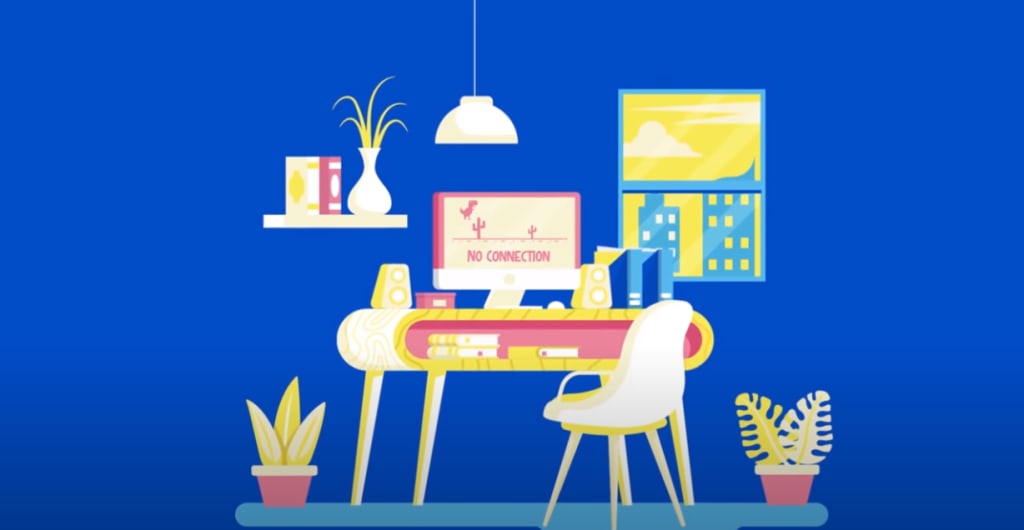The Internet and Our Brains
The truth is shocking!

The Internet and Our Brains
The internet has become an integral part of our lives. We use it for everything from staying connected with friends and family to shopping and working. But what are the effects of the internet on our brains?
The Constant Stream of Information
One of the most significant effects of the internet on our brains is the constant stream of information that we are bombarded with. When we are online, we are constantly exposed to new stimuli, from social media notifications to news articles to product recommendations. This constant stimulation can have a number of negative effects on our brains.
For example, it can make it difficult for us to focus on one task at a time. When we are constantly switching between different websites and apps, our brains have a hard time staying focused on any one thing. This can lead to problems with attention and concentration.
The constant stream of information can also lead to feelings of anxiety and stress. When we are constantly bombarded with new information, our brains are constantly in a state of "fight or flight." This can lead to feelings of anxiety, stress, and even depression.
The Decline of Deep Thinking
Another effect of the internet on our brains is the decline of deep thinking. Deep thinking is the ability to focus on a single problem or issue for an extended period of time. It is a critical skill for learning, problem-solving, and creativity.
However, the internet makes it easy for us to find quick answers to our questions. This can lead to a decline in our ability to think deeply about problems. When we can easily find the answer to a question with a quick Google search, we don't have to put in the effort to think about it ourselves. This can lead to a decline in our critical thinking skills and our ability to solve problems creatively.
The Impact of Social Media
Social media is another way that the internet can affect our brains. Social media platforms are designed to be addictive. They use a variety of techniques to keep us engaged, such as notifications, likes, and shares. This constant stimulation can have a number of negative effects on our brains.
For example, social media can lead to feelings of envy and self-doubt. When we see our friends' posts about their vacations, their new cars, and their happy relationships, it can make us feel like we are not good enough. This can lead to feelings of envy and self-doubt.
Social media can also lead to problems with sleep. The blue light emitted from our screens can interfere with our body's natural sleep cycle. This can lead to sleep deprivation, which can have a number of negative effects on our health and well-being.
The Impact of the Internet on Our Relationships
The internet has also had a significant impact on our relationships. In the past, we relied on face-to-face interaction to connect with others. However, the internet has made it possible for us to connect with people from all over the world, regardless of our physical location. This has led to the formation of new friendships and relationships that would not have been possible otherwise.
However, the internet has also made it easier for us to disconnect from the people in our lives. We can now spend hours on social media or messaging apps, without ever having to interact with the people around us. This can lead to feelings of isolation and loneliness, and can damage our relationships with the people who are important to us.
Tips for Using the Internet in a Healthy Way
The internet is a powerful tool that can have both positive and negative effects on our brains and relationships. It is important to be aware of these effects and to use the internet in a way that is beneficial to us. We should also make sure to balance our online and offline interactions, so that we can stay connected with the people who are important to us.
Here are some tips for using the internet in a healthy way:
- Set limits on your screen time.
- Take breaks from the internet throughout the day.
- Use the internet for educational and productive purposes.
- Spend time with the people who are important to you, both online and offline.
By following these tips, we can use the internet to enrich our lives and strengthen our relationships.
In addition to the effects of the internet on our brains and relationships, there are a number of other potential consequences of our increasing reliance on technology. For example, the internet can be a source of distraction and procrastination. It can also lead to cyberbullying and online addiction.
It is important to be aware of these potential consequences and to take steps to mitigate them. For example, we can set boundaries around our internet use and avoid using technology in situations where it is not appropriate.
About the Creator
Enjoyed the story? Support the Creator.
Subscribe for free to receive all their stories in your feed. You could also pledge your support or give them a one-off tip, letting them know you appreciate their work.





Comments
There are no comments for this story
Be the first to respond and start the conversation.